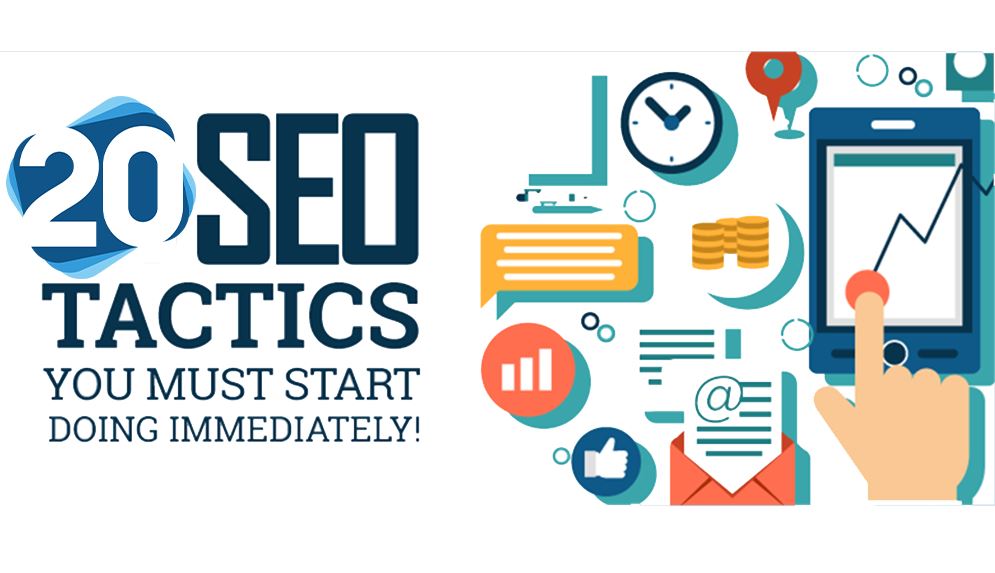11] YOU’RE SO CLOSE TO ME
★★★
Tapping into “near me” searches
Searches with the phrase “near me” added are becoming extremely popular. According to Google we see a 500% increase in “near me” searches during the last couple of years. Of course, the bulk of this traffic comes from mobile searches, but not all. When you are logged into your laptop at home these searches also make sense.
Initially a “near me” search is intended to find products or services near the place I am right now, sounds logic doesn’t it. But there is more to it. Today we also expect an instant solution. It is a very active kind of search query. We are willing to act upon it. When I search for a “gas station near me” I probably am sweating it out hoping to make it to the next station where I can fill it up. If I search for “pizza near me” I am probably very hungry and decided what I want to eat, right now!
We also see more specific queries with “near me” added but without the urgency, one would think. A search query like “Levi’s pants for sale near me” is just a way of telling my search engine that I am into buying a Levi’s, I just want to know where (and the following question may be one for Google Maps, giving me directions how to find it). What’s important about “near me” searches is its active character. These are people on the brink of becoming a customer. Question is, will they find you?
How to get on the radar with “near me” searches?
There are several ways you may prepare your website content to receive these hot searches.
1. Make sure your address is on your webpage
“Near me” searches are always local searches. One way to attract them is relying on the tracking techniques of smartphones, wifi’s and log-ins on your desktops (such as a Google account login). Your address and your Google My Business webpage play important roles here. My advice is always to put your address on each and every webpage instead of only putting it on your contact page. This helps combining search queries with locations. If one of your webpage is the perfect match for the search query without the “near me”, your address on that page may make it also the perfect match for the “near me” phrase included.
2. Write on a local search level
What I mean is that if you are a shop or business that serves a local audience propagate that fact. Go into your local authority, your perfect service in a named area, describe your local history and bond with local initiatives. The more local you appear the more local search engines will view you.
3. Give full information and prices!
Remember, this is an active group. They want to shop. So give them all the information they need to say “Yes, that’s what I’m looking for”! So, please name prices of your products. Give full details. Do not waste their precious time! So, what to do?
Think local, make sure your website is optimized for local search, add your address, make the local connection.
Most important
Showcase your physical address, add information about
parking possibilities, add opening hours, these people want to come by in
person.
12] TELL ME A LONG STORY
★★★★★
The long-form copy debate
There is much debate going on about the length of your webpage copy. Good communication should be short, clear and to-the-point. We have all learned that in high school. This is the moment to forget about that, well… only the first part. It still has to be clear and to-the-point. That’s a challenge of course, writing lengthy copy about a topic that is still relevant. But there is more to it than just long-form copy. It is not always true to begin with. Sometimes short specific copy will win the SEO battle over longer copy. This is especially the case with answering very specific questions or providing definitions. In general long copy wins however. I will explain why and, more importantly, how to write long, relevant and even specific copy about a topic without boring your audience to death and without falling asleep yourself.
The impact of long-form copy
Why does long copy beat short copy in SEO? These are the main reasons:
1. Search engines prefer complete answers (as your questions are a bit vague)
Many search queries are questions even if they do not come with a question mark. You want to know or find something when you are searching for something. Problem is that in most cases your question is a bit broad. It lacks specifics. When you type “organic search results” what are you looking for? Probably you want to learn more insights about organic search results. But what kind of insights is not clear. What should Google do? If I were Google I would offer you search results that offer as much relevant insights about organic search results if possible. That is precisely what Google offers you. In most cases this implies long copy.
2. Search engines love depth and opinions
Search engines are not robots (well in fact they are, but let’s be quiet about that, they hate that name). They know the difference between good copy and bad. They know when you went to your limits in tackling a topic, viewing it from all angles, supplying a balanced opinion. If someone is searching why not supply them with high-quality content? A webpage where you will be submerged in answers and opinions about exactly the topic you are interested in. Search engines are nice and understanding, they know what you want to read. So they give it to you (for free!). In-depth copy, shining a light on a topic from all angles, naming advantages and disadvantages, supplying some practical tips, it will all add to the supreme quality of your content. And let’s face it, you can’t do that in 300 words.
3. It’s a matter of math
Don’t underestimate this one. Roughly 70% of all search queries fall into the Long Tail category.
How to find the perfect match for Long Tails is a quest for search engines. In most cases a Long Tail consists of a combination of 2 or 3 different search themes that in most cases are related. In other cases there is no relationship whatsoever, on first sight. Let’s explore these different Long Tails queries. This is a Long Tail with a relationship between themes: “fall protection for working on atriums in high rise buildings”. Here the themes “fall protection”, “atriums” and “high rise buildings” are combined in 1 single search query. What would be a great match for this query? Of course a webpage that is talking about using fall protection working on atriums in high rise buildings. This is an in-depth search query that asks for a webpage that is touching these themes. There are not many webpages that match this query exactly, although it is not a strange query. There is logic in it. That being said, it is not covered in a specific webpage. But when you are writing a substantial webpage about the challenges of using fall protection in high rises you may coincidentally write about the use of atriums in high rise buildings. The longer your copy the likelier the possibility is that you touch on some logic combinations.
What about non-related Long Tails? Consider this query: “hiring a car in New York coming by train from Philadelphia”. Sounds logic too but here some non-related themes are combined. “train” and “car”, “New York” and “Philadelphia”. Making it worse is the confusion between arrivals (New York) and departures (Philadelphia). When you use this phrase in Google you will learn that search results will come up with webpages that offer car hires in New York and in Philadelphia. The train station is ignored in most cases. Suppose you had written a webpage about inbound trains from Philadelphia and the nearest car rentals in the area of the most common NY train station it most certainly would have come up. These are all accidental matches that emanate from long copy webpages. You do not intend to match for these specific long tail queries but in writing long-form copy your chances of hitting the perfect match increase drastically.
So how to write long-form copy?
First you will have to think about the search theme you are trying to tackle. Is it a highly competitive theme? Then long copy makes sense. Is it a broad theme with many related subthemes? Then long copy will definitely be the answer. But where to begin and how to start?
My advice:
- Begin with defining your theme
Tell about what you are going to write and explain in general terms what your theme is all about.
- Explore your theme
Supply characteristics, give examples, write about traits and specifications.
- View your topic from all angles
Are there any downsides or conflicting thoughts? Show them.
4. Talk about usability and practical issues
Combine your theme with other subthemes. Delve into practical uses and showcase solutions in different situations.
5. Supply tips and advice
Try helping your audience on their path to purchase or help them in their considerations. Whenever you are approaching a writer’s block a practical tip will keep you writing.
What’s the problem with long-form copy?
There is only one problem: It will take time and tap all
your energy. I have only one thing to say to that: A well-written long-form
copy will bring you lots of organic traffic for many, many years to come. The
blood, sweat and tears of today will be paid back with dividends for as long as
5 to 10 years and even beyond that.
How long should my copy be?
Forget that question. When you tackle all ins and outs about a search theme you know when you are ready. That’s the time to quit. For lovers of figures. Think in the range of 1.500 to 2.500 words.
Choosing your theme
There is one issue I have to add to this discussion. When choosing your search time, pick one that is specific. It’s no use to write a long-form copy about “shoes”. It is in the specific themes that long copy will make the difference. Writing about “measuring the size of your feet” is a perfect one. Another would be: “choosing the right shoe laces”. Of course it depends on your market but too general themes are not suited. Too specific makes your work hard of course, but that is precisely why you can make the difference.
So, what to do?
Take your time for writing a content page, you are in it for the long term.
Take the helicopter view when writing, make sure to describe things from all angles.
Name advantages, disadvantages, practical examples, projects, just be thorough. When your inspiration is empty try personal tips.
Most important
1 hour spent more now on writing content may mean the difference between 0 and 1.000 visitors to that page, you do not waste energy in writing long-form copy, you will waste it when writing too short copy.
13] EAT THAT!
Total average SEO impact: ★★★★★
It’s all about Expertise, Authoritativeness & Trustworthiness
Looking at your webpage from a search engine’s perspective it is this what they are looking for. If your webpage shows Expertise, Authoritativeness and Trustworthiness (EAT) your search engine will treat your webpage with respect and gives you the best and first seat in the waiting room we call the search engine result page. I do not make this up, Google explicitly acknowledges that EAT is one of the most important ranking factors. That leaves us with the question: How to become a trusted expert with authority? Hmm, that sounds like a bit of work. It does.
What is expertise?
Pure knowledge, not only in theory but also in practice. You are not an expert when you just graduated as a heart surgeon. You must understand your line of business, be able to distinguish the rubbish from the gems, see through the mist others create. It doesn’t come overnight, it takes time to absorb the facts and give them the meaning they deserve. Also important: you cannot become an expert in all fields, it requires specialization. Are you an expert? Do you know your trade? How long can you teach others about your business? Are you done in an hour or can you talk about your profession from dawn till dusk?
How to let Google know you’re an expert?
I know some truly great experts. My father is one of them. He was an expert in production process optimizations, customers who got to know his expertise never wanted another. If you would ask me to name an expert in web design I could give you a few names. Problem is, Google doesn’t know. In the case of my father he is forgiven, he already excelled in his job before the dawn of the internet. But if you are an expert in your field and you can use some extra business just being great doesn’t suffice, you must prove it to the Googles of the world. How? The answer is simple, share your knowledge. Write about your business, give away all the ins and outs you know, supply advice, share tips. Just let it all out!
But if I do that, who wants to pay for my expertise?
If selling your expertise is what makes you earn your daily bread it makes no sense to give it all away for free. Does it? Yes, it does! It makes perfect sense to disperse your knowhow, 100% free as if you were Santa Claus. Just giving, no taking. Why? 3 reasons:
1. It’s the only way to let others know you know your trade
You may claim to be an expert, you might let others tell that you are but only by showing your expertise will people see for themselves that you deserve this title. For new customers who do not know your name you must proof that you are worth their time and money. There are not many souls out there that fall for the line “I’m the best that’s ever been”. Your website content must breathe expertise. It should give away exactly what they are searching for. People will respond by: “thanks for the information, this guy or girl knows what he /she is talking about”. Will they pick up the phone and tell you to come over right now? No, they won’t, not for now, maybe never. But that’s not a problem, somewhere, in the back of one’s head, a few brain cells will store this information and add to it: “I was touched by an expert”.
2. It’s the only way to let search engines know there is an expert “in da house”
Search engines do not take things for granted. Claims of expertise don’t mean sh#t to them. They want to see and hear your expertise by your website content. What they are looking for is the perfect match for a search query and they know that giving silly answers to smart questions will not bring them praise and glory. What does a search engine do, 24 hours of every single day? They go through an amazing amount of website content. They crawl through heaps of content and most of it is pure senseless rubbish, the same stuff all over again and again. And once in a while they too are touched by this great article, this jewel of a webpage that just plainly explains in all color and finesse the answers to WHAT, HOW and WHY. They too will remember this when it will be convenient, when the time is right, when someone searches for the answers you supplied.
3. Don’t let Do-It-Yourselfers bother you
What would have become of our human race without this special breed of man? We don’t know who invented the wheel but I’ll bet it was a Do-It-Yourselfer. A stubborn, fool hearted, headstrong go-getter who ignores the help of others and want to solve a problem all by him- or herself. The world’s greatest inventions as well as its biggest failures have been accomplished by Do-It-Yourselfers. What do they do? They suck in all the information that is available, they want to learn all the tricks of the trade and then apply them on their own. That is not selfish behavior. It isn’t piggyback riding. They just want to do things by themselves. Nothing wrong with that, even respectable. I tell you this because this is what you are afraid of. That someone is “stealing” your expertise and apply it by him- or herself without paying you for it. Let me tell you one thing about Do-It-Yourselfers: They are what they are, they would never have become a customer of yours, they are not part of your target audience. You will never lose business to a Do-ItYourselfer. There is no downside. There even is an upside. They go through your pages, they have the longest Time on Sites of all visitors (because they are the only ones that really read all your stuff) and indirectly they propel your webpages to the best spots of search engine result pages. Hail to the Do-It-Yourselfer!
From Expertise to Authority
Becoming an expert isn’t easy. Becoming an authority in your field is even beyond that. What’s the difference between an expert and an authority? You can work to become an expert, it’s all up to you. Not so with authority. It’s a prize you may get when you excel in expertise and other people recognize you as THE source of know-it-all. Is there nothing you can do about it? Well there is plenty to do, but the final verdict of authoritativeness is in the eye of the beholder. What can you do? Share your expertise by all sorts of media and stages. Speak about your expertise, write about it, help people with it. Spread the word!
How Google assesses authoritativeness
Google is on the look-out for authoritativeness. It’s the excellence of expertise they crave for. As a search engine they look at authority through the lens of website content. They want to show the best website content on a search query coming from a respectable source. A source with authority. It is not only what is being said but who is saying it that counts. But how does that work? First and foremost search engines want to know who is responsible for the webpage content. Think of Contact pages with a full address included, About Us pages with lengthy information about the background of who’s behind the website and supplying information about the writer of a single webpage or blogpost. That is the first part of assessing authority. Then it depends on the authority of this person or organization that is behind the webpage content. Search engines have a myriad of ways to establish authority. Let’s name a few:
- Backlinks form other respectable sources that lead to a webpage or website
- Search volume on the name of the writer of webpage content
- Branded search volume on the name of the organization or website
- Number of places that a particular name of person or brand will pop up in other websites or social media
- Returning visitors that come back to more website content of the same website
- Number of shares of webpage
Becoming an authority in your field takes time and efforts. It also depends on your line of business. When you are active in the health industry the webpage content written by a wellknown physician will be more authoritative than that written by an active health blogger. But if this blogger has established a large following of active readers he or she may outperform the physician, even on authoritativeness.
Can I trust you?
This is a question that is at the essence of human interaction. Are you telling the truth? Don’t you have ulterior motives? Are you someone I can depend upon? You may be viewed as an expert, you may be an authority in your field but this all means nothing if you cannot be trusted. Trust is the most important trait in a human being, it connects the inner soul with the outer behavior. You might wonder if an expert with authority may exist without trust? Well, that depends. There are many cases that expertise, authority and trust prevail until that final moment of truth when everything collapses. Think of the Bernie Madoffs of this world who run Ponzi schemes to lure investors money. They use their “expertise” and authority to gain access to people’s money. Trust builds up as high returns are made possible by still higher deposits of customers and when this flywheel of fortune dries up the whole house of cards implodes. The same may be true about some world leaders that use trust the other way around. They are trusted with people’s votes based upon alleged expertise of running the country and when they are in power they build authority to hold control. Trust is given by someone else, you may use it to reinforce it or misuse it to mislead the giver.
How to establish trust on webpages?
First, make sure that what you’re saying is right. That is not the same as saying that you cannot express your own meaning or give your own interpretation of something. On the contrary! But do not say things that are completely rubbish. Not so long ago I was attending an event where a person gave a presentation about the use of social media. This guy was a so-called expert on its subject, he was an authority (he wrote about 10 books) but a couple of things he was telling were absolutely nonsense. They were so besides the truth that for me he lost all his credibility. If these couple of things were so outright false what should I think about all the other non verifiable things he was telling me? He lost his trustworthiness right at that point. I must add that trustworthiness is a personal thing. You may gain it or lose it one person at a time. After the presentation other people told me: “Hey, that guy was really great, didn’t you think so?”. I was lost in frustration…
Besides telling the truth, trustworthiness comes forth from being authentic. Share your views, explain complicated matters, but always do it in your own authentic voice. That will build credibility and trustworthiness. Think of your Tone of Voice, writing webpages in your own style will adhere to a specific audience. It will establish a match with a like minded person (and may also repel not like minded persons). Will search engines pick up your trustworthiness? They do if what you are saying makes sense. It also helps if you publish more of the same high quality web content. They may see you as a source for good reliable content on a specific theme.
Another powerful way to build up trust for search engines is sharing original and authentic news on a regular basis. A daily blog about your specific market will in time generate expertise, authoritativeness and trustworthiness. As long as you can come up with really original and authentic content that is right on the spot! So, what to do?
Showcase your expertise.
Write in an authentic way using a consistent Tone of Voice.
Verify claims and figures, be sure to tell the truth.
Concentrate on your website but writing on other platforms will help .
Write a book about your expertise (it’s fun!).
Add new content expressing your expertise on a regular basis.
Make it possible to get back to you, use newsletters and email subscriptions.
Most important
Give away all you know. They will pay you for expertise in action.




